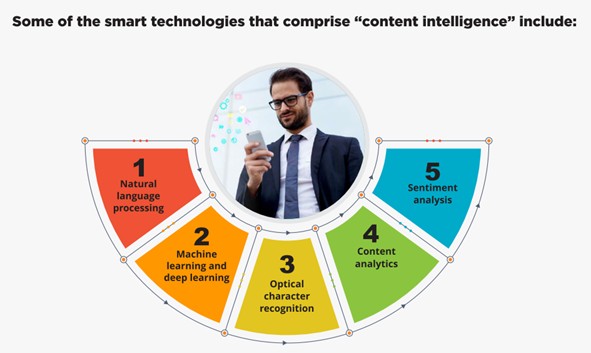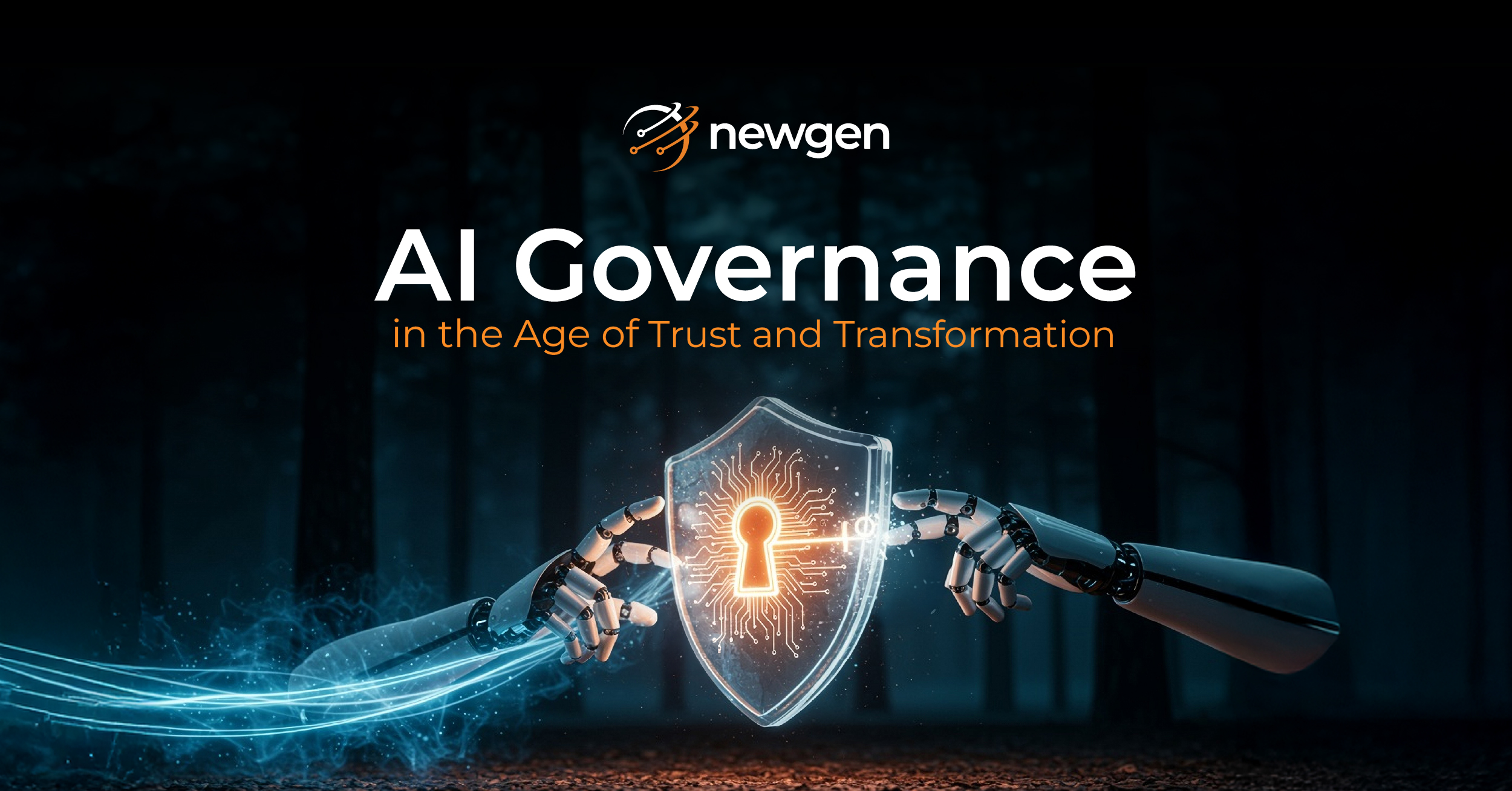Content intelligence and Digital Transformation are the next big game-changer for businesses. Here’s why.
When I think of data, I think of information, insights, intelligent decision-making, and more. Let me share some results from various surveys:
- A study by Boston Consulting Group discovered that 70% of digital transformation efforts had fallen short of their goals
- IDC predictions, 80% of global data will be unstructured by 2025
I see a connection between the above two trends. Every organization generates large amounts of unstructured data (High Velocity and Variability), and the inability to get insights from this data often sees them failing to achieve the organizational goals.
Forbes states that one of the top reasons for failed efforts is not having the right data in the right place.
It is clear that with the sheer volume of available data, companies need to leverage the right technologies to extract content intelligence and use this data to their advantage. A digital transformation (DX) platform powered by content intelligence can enable an enterprise to take its vision forward.
How Content Intelligence Accelerates Digital Transformation Platform
Data, whether it is structured or unstructured, is a treasure of content intelligence for organizations. This means modern enterprises need to have the right tools to extract and analyze structured and unstructured data. Content intelligence encompasses a range of technologies, including OCR, AI, ML, and NLP, that can extract, digitize, and efficiently route information throughout the organization.

Simply put, when you have content intelligence, you know more, discover more, and do more. Let us see what content intelligence brings to the table:
1. Empower employees
Organizations have different systems used by various teams and departments. It is important for business applications across different functions to be interconnected. A modern content service system with content intelligence tools can empower employees to gain seamless information flow, collaborate, maintain correspondence of data updates, and take actions whenever necessary.
2. Increase efficiency in business operations
Process efficiency and accuracy across the board can be achieved by leveraging content intelligence. Content intelligence tools like machine learning can effectively identify duplicate records, mismatches, and other exceptions, which helps organizations improve efficiency, cut costs, and eliminate the ‘busy work.’ Data analytics can also help organizations analyze the customer base and accordingly draft business strategies. Additionally, content intelligence can enable real-time strategic and tactical changes to ensure efficient allocation of resources.
3. Smarter decision-making and compliance
Content intelligence tools like machine learning and algorithms can bring context to content, providing business users with the necessary information to make data-driven, smart decisions. Furthermore, businesses are exposed to market and business risks more than ever before. Content intelligence can provide organizations the elasticity and adaptability to make changes in real-time to ensure they remain risk-free and compliant.
4. Excellent customer experience
Organizations can gain powerful customer information by mining and analyzing the available data. Customer information can be found in structured data as well as unstructured data such as chatbots, emails, or phone calls. Streamlining content management processes and content intelligence involves extracting relevant content to learn customers’ behavior, needs, and preferences and accordingly offer personalized offers based on their information. Through classified content, organizations can properly assist customers throughout the various stages of their buyer journey and serve through their preferred channels and devices.
5. Seamless integration
With a modern content services platform equipped with content intelligence tools, you can maximize the use of your data and leverage content intelligence across operations. With content integration, an organization can bridge content siloes and ensure content integrity by managing content across different business applications. Employees can also be empowered with content intelligence to seamlessly access and use contextual content anytime and anywhere.
Organizations focusing on DX recognize agility as the key driver of successful initiatives. While agility is the heart of digital transformation platform, we can say that content intelligence is the brain.
Time to wear your thinking cap!
While we have established the importance of data and extracting intelligence out of it, how can business leaders like you leverage content intelligence to accelerate digital transformation and become a modern enterprise?
To become a modern enterprise that thrives on continuous innovation and customer experience, two ingredients of a digital enterprise are crucial. And those ingredients are context and speed. The ability to efficiently process large-scale content in real-time with content intelligence tools enables contextual engagements. And for speed, organizations need the ability to rapidly build and deploy business applications, which comes with low code.
To get deeper insights into how you can chalk out an action plan to start your digital transformation journey, download the free copy of our co-branded whitepaper with KPMG.
FAQ
1. What different forms of content can be leveraged to harness content intelligence?
Content comes in various formats, including paper documents, digital documents, audio, and video clips, images, emails, instant messages, social media posts, records, and archived documents.
2. What are the right tools for effectively extracting intelligence/insights from content?
Smart technologies that can allow organizations to intelligently handle unstructured data and extract content intelligence include natural language processing, machine learning, deep learning, optical character recognition, content analytics, and sentiment analysis.
3. How can content intelligence help my enterprise grow?
Content intelligence can introduce several benefits such as improved business operations, intelligent decision-making, compliance, superior customer experience, and seamless integration.
You might be interested in





